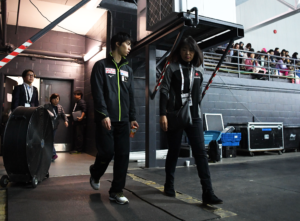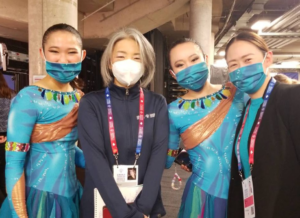You Don’t Have to Be Perfect; You Just Have to Be Awesome
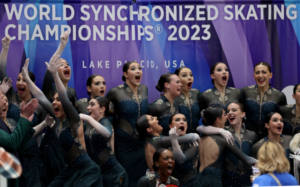
Photo by Elsa Garrison – International Skating Union/International Skating Union via Getty Images
In the spring of 2022, senior synchronized skating team Les Suprêmes struck gold at the ISU World Synchronized Skating Championships in front of a home crowd in Hamilton, Ontario. This marked the third time in history that a Canadian team would stand on the top step of the podium since the event’s inception 22 years ago. The previous team to win gold was NEXXICE in 2015, seven years prior. So, how did they get here?
Believe it or not, COVID-19 helped catapult the team to this level of excellence. When talking with Marilyn Langlois, one of the three members of the coaching team along with Pascal Denis and Amélie Brochu, she attributes their success to the training constraints they had to adhere to during the pandemic.
Marilyn paints a picture of what their training was like: “The pandemic forced us to focus more on individual skating skills and we had to get creative with our trainings, using sticks to maintain distance which allowed for more room to skate and to skate bigger.”
This unique training environment created a strong base for the skaters and allowed them to put together a much stronger program. Heading into Worlds in 2022, Les Suprêmes were not well ranked internationally, a direct result of limited opportunities to compete internationally due to the Omicron outbreak in January 2022. A few months later in Hamilton, the hometown crowd shook the building each time Canadian synchronized skating teams took the ice. It felt more like a hockey game than traditional figure skating. It was a special moment for this Canadian team as they skated lights out and captured the gold medal on home soil.
The 2022-2023 season was slightly different for the reigning world champions due to the fact that synchronized skating was added to the
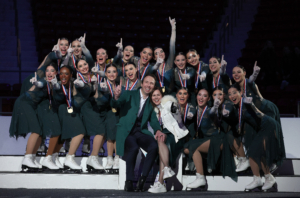
Photo by Elsa Garrison – International Skating Union/International Skating Union via Getty Images
2023 Canadian Tire National Skating Championships program for the first time alongside all other skating disciplines.
This was a special moment for the synchronized skating community and fans welcomed the discipline with open arms. Throughout the event, spectators were heard saying things like “I didn’t know synchronized skating was like this” or “It’s come so far technically from when I last watched.”
However, this change also meant that synchronized skating teams would be competing for their national title a month earlier than in the past. Historically, synchronized skating teams participated in their own National Championships which took place in February, with the ultimate objective of peaking at the World Championships in late March. Going into nationals as World Champions the previous year, Les Suprêmes were the strong favourite to win, but ended up placing third.
According to Marilyn Langlois, it wasn’t a bad skate and they were not planning to peak at nationals. To not perform at your best at the National Championships seems counterintuitive, but sports are a building game and each competition prepares you for the next. The team was focused on getting the technical elements, good GOEs and building mental strength so they could peak when it counted.
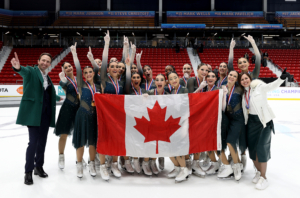
Photo by Elsa Garrison – International Skating Union/International Skating Union via Getty Images
Following nationals, Canada’s synchronized skating teams began their international season and the work to qualify for the World Championships. This is a time of “believing and trusting the process and being confident in the program you are building,” shared Marilyn.
At their first international competition of the 2023 season, the team was just looking to improve and build confidence. These competitions are good preparation for Worlds as athletes compete against other international competitors. The focus is on winning one element at a time. The coaching philosophy always being, ‘You do not have to be perfect; you just have to be awesome.’
Indeed, they were awesome and in turn accomplished something amazing: the team won medals at both of their international competitions leading up to the World Championships, finishing first at the 2023 Challenger Series Spring Cup and claiming bronze at the 2023 Leon Lurje Trophy. This momentum carried them into the 2023 ISU World Synchronized Skating Championships, where they accomplished something incredibly awesome: back-to-back World Championship titles, a first for Canada.
Competing at this level of the sport requires strong mental skills, which is a main area of focus within the coaching team. They constantly tell their team that they just need to be awesome because perfection is impossible and regardless of the outcome of the season, “they are still going to be able to achieve something awesome by the end.” In addition to instilling this mindset within their team, they take proactive approaches to preserve athletes’ health. The coaching team regularly checks in individually with each athlete and Marilyn confirms that for their coaching team, “the health of the athlete, mentally, physically, comes before any performance.
For Les Suprêmes, winning in a healthy way is a mindset they would like to bring to the forefront of competitive sport. “Doing it in a healthy way is doable, it just takes a lot more communication and listening to the needs of your athletes, as well as, finding just the right balance between hard work and fun.”

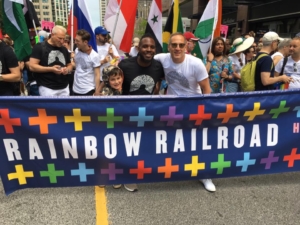 In 2006, the organization was founded by a group of volunteers who started privately sponsoring queer refugees to come into the country one individual at a time. They operated like this until 2013 when Rainbow Railroad became a registered charity in Canada and then a few years later in the United States. Their main mandate is emergency travel support. Since their inception, they have helped almost 10,000 2SLGBTQIA+ people find safety through relocation, crisis response and financial assistance. It’s a big job and it’s intricate, working with governments and on the ground organizations to assist as many people as possible, and more people need help than you might think.
In 2006, the organization was founded by a group of volunteers who started privately sponsoring queer refugees to come into the country one individual at a time. They operated like this until 2013 when Rainbow Railroad became a registered charity in Canada and then a few years later in the United States. Their main mandate is emergency travel support. Since their inception, they have helped almost 10,000 2SLGBTQIA+ people find safety through relocation, crisis response and financial assistance. It’s a big job and it’s intricate, working with governments and on the ground organizations to assist as many people as possible, and more people need help than you might think.
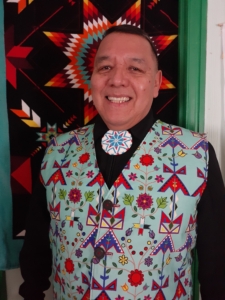 Clayton Sandy is a survivor of the ‘Sixties Scoop’ a period where large numbers of Indigenous children were taken from their families and placed in non-indigenous foster homes. Both of his parents went to residential schools, as well as six of his siblings. Growing up, Clayton shares a story of a home life marked by violence and alcohol. He shares with us interactions with police who beat him and urinated on him. Racism, violence, and alcohol were all regular occurrences but that would not be his path forward.
Clayton Sandy is a survivor of the ‘Sixties Scoop’ a period where large numbers of Indigenous children were taken from their families and placed in non-indigenous foster homes. Both of his parents went to residential schools, as well as six of his siblings. Growing up, Clayton shares a story of a home life marked by violence and alcohol. He shares with us interactions with police who beat him and urinated on him. Racism, violence, and alcohol were all regular occurrences but that would not be his path forward.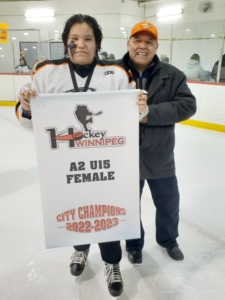 Fast forward to today and Clayton Sandy is focused on sharing the history of his people and his own story to ensure people are hearing about Indigenous experiences from an Indigenous person. He is retired after 39 years of work in government but for a retired person his work towards reconciliation keeps him very busy.
Fast forward to today and Clayton Sandy is focused on sharing the history of his people and his own story to ensure people are hearing about Indigenous experiences from an Indigenous person. He is retired after 39 years of work in government but for a retired person his work towards reconciliation keeps him very busy.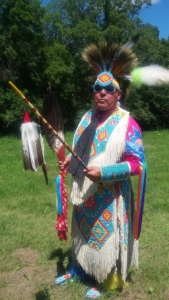 Clayton participates in initiatives like this regularly to help move society forward in relations between Indigenous and non-Indigenous people.
Clayton participates in initiatives like this regularly to help move society forward in relations between Indigenous and non-Indigenous people.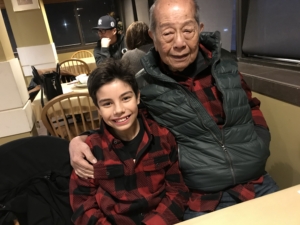 Davey’s granddad was born in Myanmar (formerly Burma) and as a child lived in Myanmar, China, and Kolkata, India. Davey had a special bond with his granddad and is heavily influenced by him. Growing up in Winnipeg, Manitoba, Davey and his family have always been involved in the Chinese community attending festivals, the Lunar New Year and volunteering at the Chinese pavilion.
Davey’s granddad was born in Myanmar (formerly Burma) and as a child lived in Myanmar, China, and Kolkata, India. Davey had a special bond with his granddad and is heavily influenced by him. Growing up in Winnipeg, Manitoba, Davey and his family have always been involved in the Chinese community attending festivals, the Lunar New Year and volunteering at the Chinese pavilion. He resonates with the work of authors like James Baldwin.
He resonates with the work of authors like James Baldwin.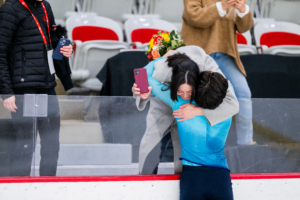 In addition to his high-performance training, Davey also works as a CanSkate program assistant. When working with young Asian skaters, he has noticed that visibility provides a point of connection. He recounts stories of Asian skaters and parents and how they tend to approach him as a primary point of contact on the ice. As he moves forward in his skating career, he shared that his goal is to just, “keep pushing forward, for more inclusion and representation, specifically in Manitoba.”
In addition to his high-performance training, Davey also works as a CanSkate program assistant. When working with young Asian skaters, he has noticed that visibility provides a point of connection. He recounts stories of Asian skaters and parents and how they tend to approach him as a primary point of contact on the ice. As he moves forward in his skating career, he shared that his goal is to just, “keep pushing forward, for more inclusion and representation, specifically in Manitoba.”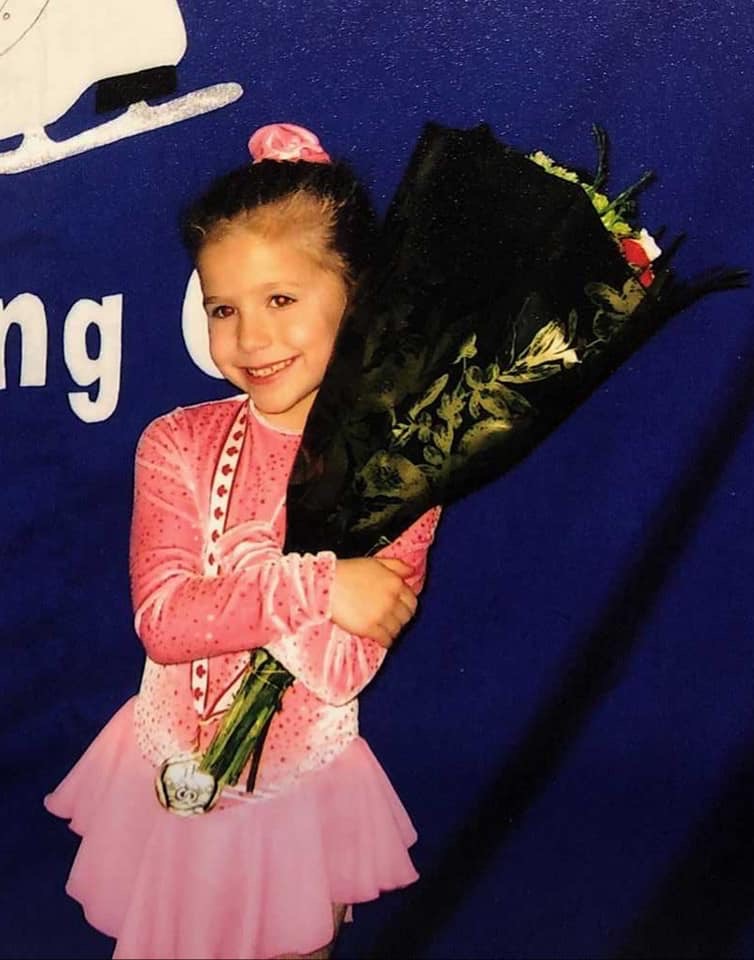 A third-year nursing student and long-time figure skater, Rachel was also born without a left hand. A congenital upper limb deficiency, which means that her left hand never developed during her mom’s pregnancy. Her parents were concerned at first but that quickly faded when Rachel was able to hit all her developmental milestones just as easily as her two older brothers.
A third-year nursing student and long-time figure skater, Rachel was also born without a left hand. A congenital upper limb deficiency, which means that her left hand never developed during her mom’s pregnancy. Her parents were concerned at first but that quickly faded when Rachel was able to hit all her developmental milestones just as easily as her two older brothers.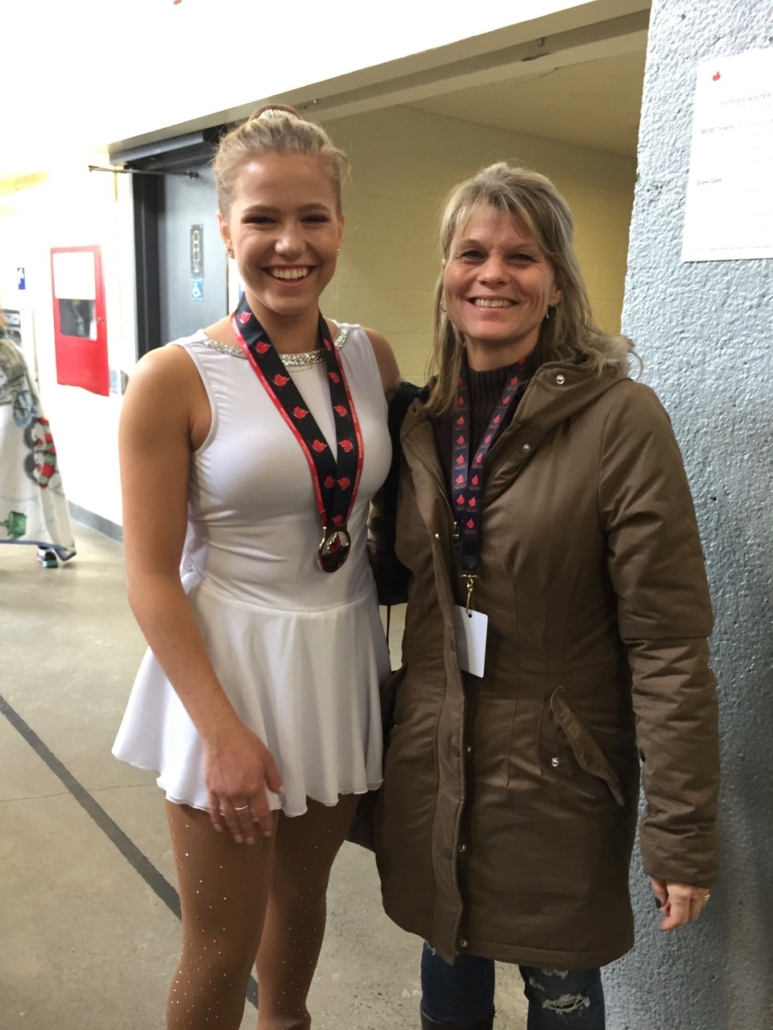 competitors, most of whom were able-bodied. It’s important to note here, Rachel was not given any special considerations or points for her disability. Rachel would go on to qualify for provincials at least two more times, a huge accomplishment given her disability does come with limitations.
competitors, most of whom were able-bodied. It’s important to note here, Rachel was not given any special considerations or points for her disability. Rachel would go on to qualify for provincials at least two more times, a huge accomplishment given her disability does come with limitations.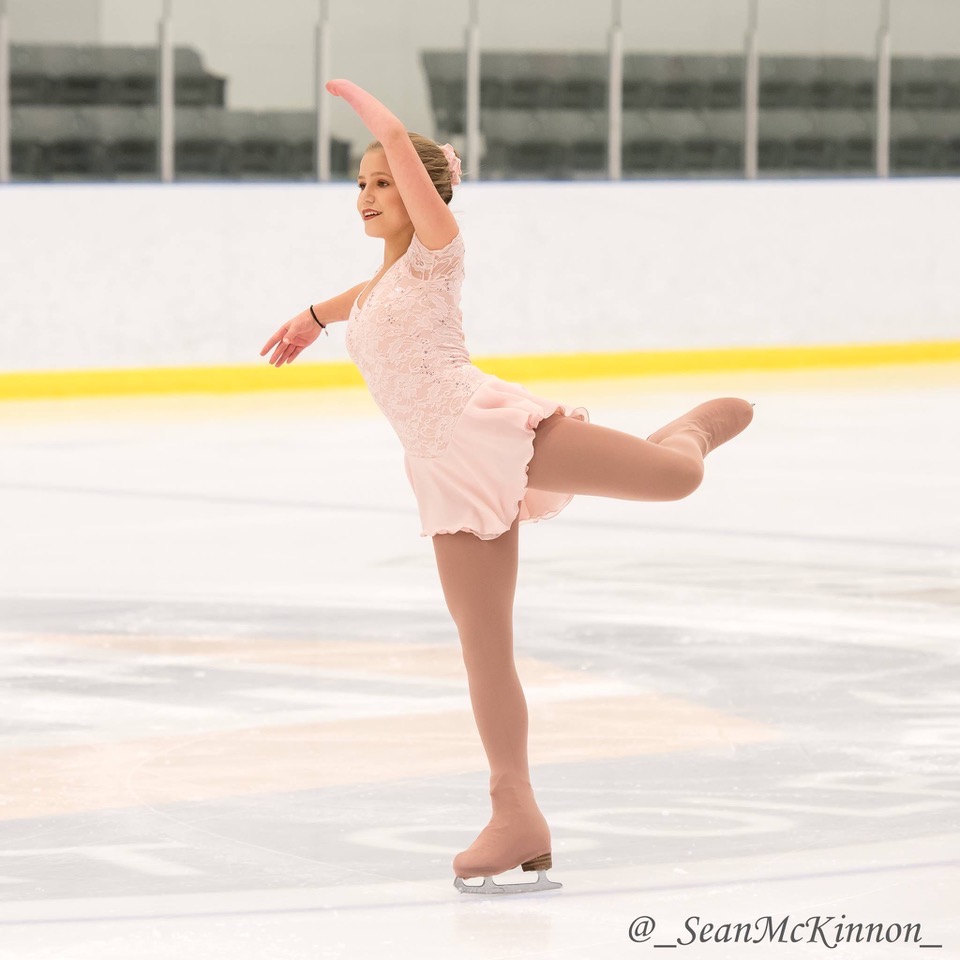 This attitude is how she is powering her way through a nursing degree at Queens University. When Rachel first enrolled in the program, she was not sure if she would be able to complete it due to the limitations of her disability. While some people would never have signed up in the first place, Rachel’s try first attitude kicked in.
This attitude is how she is powering her way through a nursing degree at Queens University. When Rachel first enrolled in the program, she was not sure if she would be able to complete it due to the limitations of her disability. While some people would never have signed up in the first place, Rachel’s try first attitude kicked in.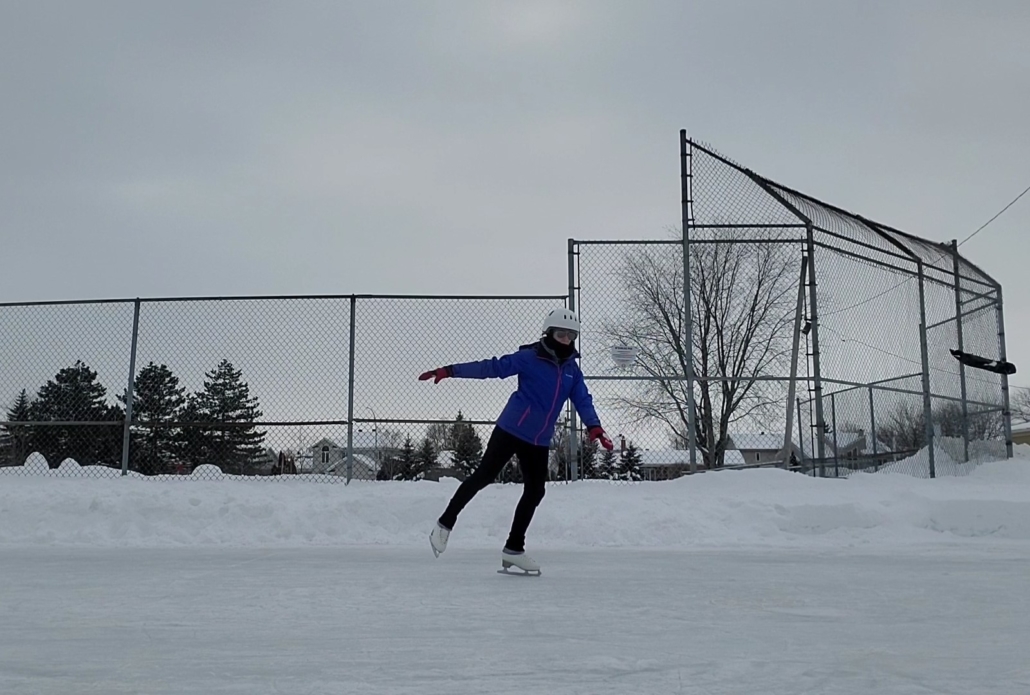 In January 2020 Katharine thought it would be fun to take up figure skating as something she would be able to share with her daughter. She started slow, skating once a week, and was surprised at how hard it was. Ballet and figure skating often lend to one another, with many figure skaters taking dance classes to work on artistry, form, and other skills, but despite her background Katharine still found it quite challenging.
In January 2020 Katharine thought it would be fun to take up figure skating as something she would be able to share with her daughter. She started slow, skating once a week, and was surprised at how hard it was. Ballet and figure skating often lend to one another, with many figure skaters taking dance classes to work on artistry, form, and other skills, but despite her background Katharine still found it quite challenging.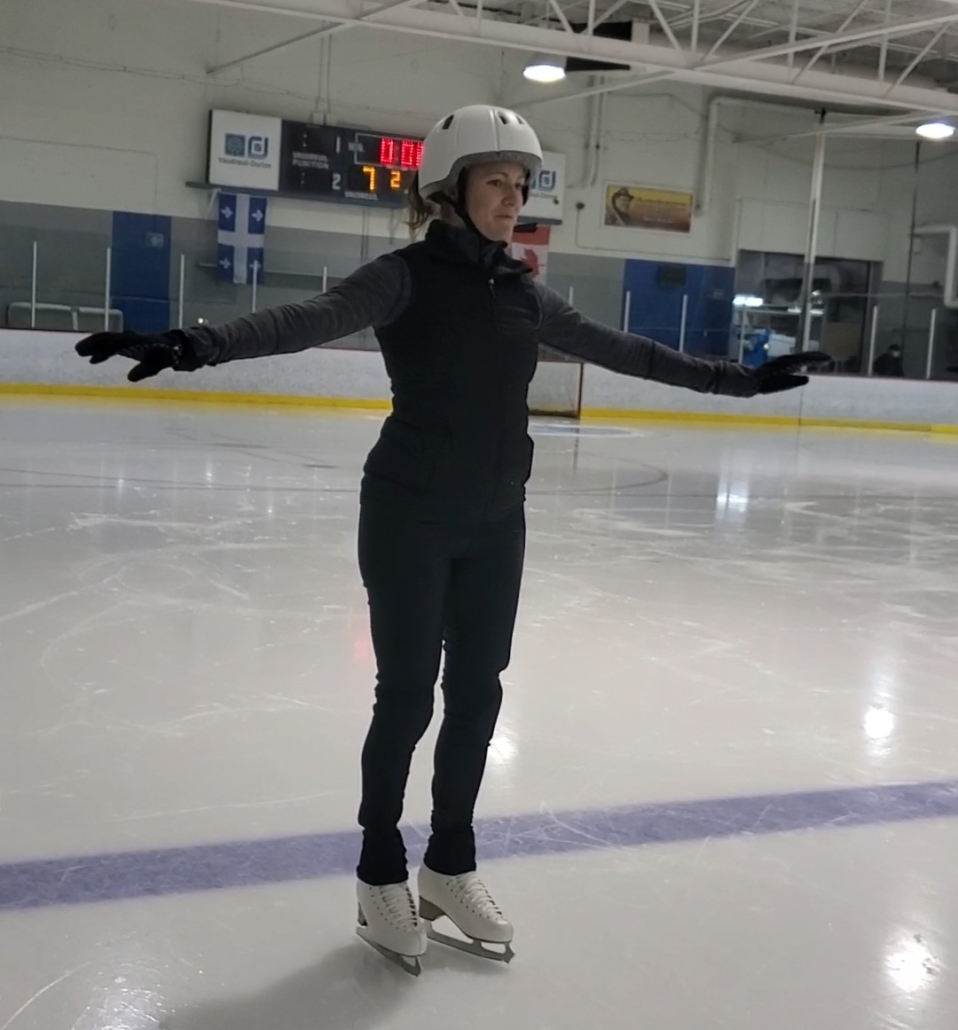 Katharine shared: “Stuff that should have been super easy on either foot just wasn’t”. Following this discovery, Katharine immediately made an appointment with her doctor. Regular strength and conditioning tests revealed significantly decreased strength in her left leg. It could have been something neurological, or it could have been the nerves misfiring, but something was “off”. Katharine’s doctor sent her for numerous tests including an MRI.
Katharine shared: “Stuff that should have been super easy on either foot just wasn’t”. Following this discovery, Katharine immediately made an appointment with her doctor. Regular strength and conditioning tests revealed significantly decreased strength in her left leg. It could have been something neurological, or it could have been the nerves misfiring, but something was “off”. Katharine’s doctor sent her for numerous tests including an MRI.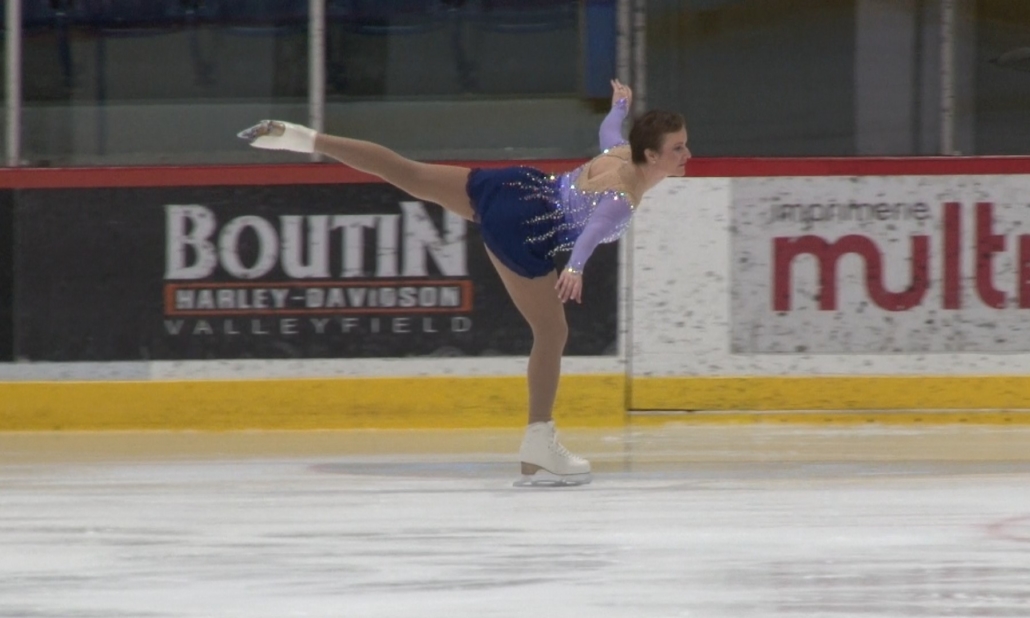 Katharine swears that figure skating saved her life. “If I hadn’t been skating, it could have been extremely, extremely severe. Not that it wasn’t, but it could have gotten to the point that it had done a lot more damage.” She continues to struggle with her left side on the ice but now thinks, “I have sort of reached close to a normal point of it just being a difference between the two.”
Katharine swears that figure skating saved her life. “If I hadn’t been skating, it could have been extremely, extremely severe. Not that it wasn’t, but it could have gotten to the point that it had done a lot more damage.” She continues to struggle with her left side on the ice but now thinks, “I have sort of reached close to a normal point of it just being a difference between the two.”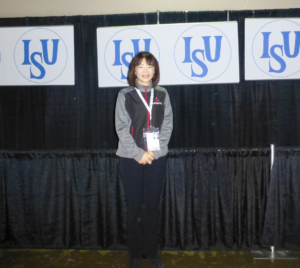 Let’s rewind back to Skate Canada International (SCI) 2013, where Japanese figure skating star Yuzuru Hanyu was set to compete in Saint John, New Brunswick. Kano Podolsky had always been a casual figure skating fan, tuning in at the Olympics and watching well-known household names like Kurt Browning, Elvis Stojko and Bourne and Kratz, but she had never been involved in the sport until she applied to become a volunteer.
Let’s rewind back to Skate Canada International (SCI) 2013, where Japanese figure skating star Yuzuru Hanyu was set to compete in Saint John, New Brunswick. Kano Podolsky had always been a casual figure skating fan, tuning in at the Olympics and watching well-known household names like Kurt Browning, Elvis Stojko and Bourne and Kratz, but she had never been involved in the sport until she applied to become a volunteer.